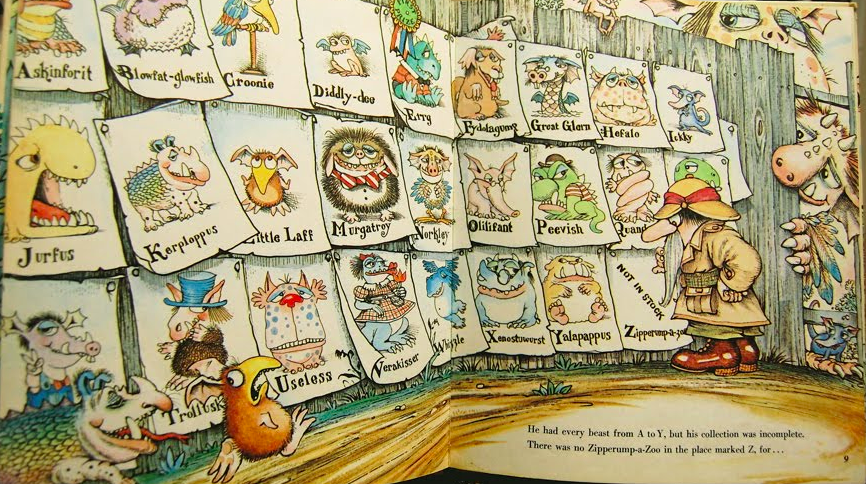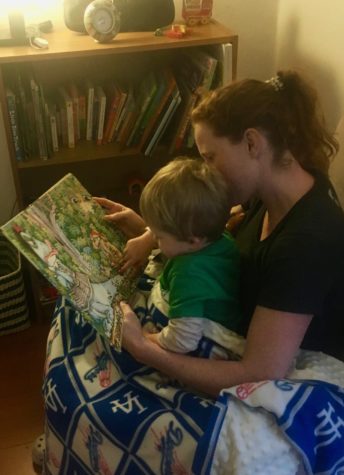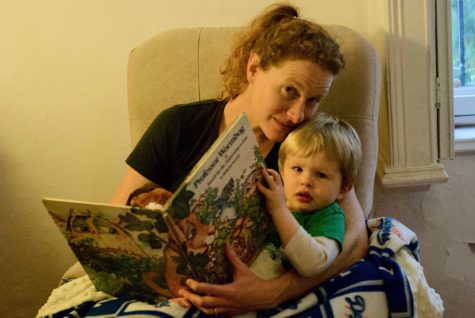 Having a baby is a miracle. Everyone tells me so, so it must be true. It’s also an adventure – again, according to pretty much everybody. I’ve had a lot of adventures and spent years searching for miracles and I have to say, those words don’t really fit.
Having a baby is a miracle. Everyone tells me so, so it must be true. It’s also an adventure – again, according to pretty much everybody. I’ve had a lot of adventures and spent years searching for miracles and I have to say, those words don’t really fit.
It’s more like one long psychology experiment. Sample size of one, with the option for follow-ups to test reproducibility. The latest stage of my own research has been language acquisition. My son’s first word was “mommy.” Second was “kitty.” (Daddy was in the top ten though. I think.) Ever since then it seem like he’s just been collecting words and sticking them in his pockets like shiny pennies.
And in two languages. I’m raising my son to be bilingual because I live in Mexico and also because apparently it’s the hip thing to do these days. Studies suggest that a second language promotes things like problem-solving, attention, and seeing things from multiple points of view. In addition, it also increases the ability to, you know, speak a second language.
(My own research also suggest that when your baby is bilingual you can lord it over other parents at Gymboree because you are so culturally sensitive and they are total parenting failures. I’m not judging, that’s just science.)
But not all research supports teaching second languages. Some studies have shown that when a person grows up with two languages their vocabularies in each is lower than in those who speak just one. Now, the margins are small, and they might not even be real. But to a secretly highly insecure parent like me they are enough to freak out about.
Enter Professor Wormborg. No, he’s not a linguist, he’s a cartoon character in my favorite childhood book. Wormborg is a classic gentleman adventurer scientist who discovers exotic species in far flung places for his private zoo. He travels the seas, explores caves and sleeps with the queen of the bird people. He even wears a pith helmet.
Conveniently, his zoo holds 25 different animals, one for every letter in the alphabet. There’s a Kerploppus, a Croonie, a Murgatroy, and a Norkley. You get the idea. The only one missing is the Zipperump-a-zoo. When he goes off in search of it, hilarity ensues. It’s a great story with stunning illustrations and lots of opportunities for learning.
Wormborg was my first introduction to biologists and he’s still my all-time favorite. With his long explorer’s jacket and his coke-bottle glasses, he was the ultimate adventurer nerd. When I learned bird watching in college, I couldn’t help but feel a little like Professor Wormbog, ticking of pictures from my list of bizarre critters. There was no way I was not reading this book to my son.
 But here’s the thing – a good chunk of the book’s words aren’t real. What use is it to learn “Whizzle?” Or “Jurfus?” My kid has a limited amount of room for English words and I’m now filling that up with nonsense. And it won’t stop with Professor Wormborg. Someday he’ll learn the words “muggle,” “orc,” “Ewok,” Klingon,” “melange,” and “thoughtful lawmaker,” none of which are real.
But here’s the thing – a good chunk of the book’s words aren’t real. What use is it to learn “Whizzle?” Or “Jurfus?” My kid has a limited amount of room for English words and I’m now filling that up with nonsense. And it won’t stop with Professor Wormborg. Someday he’ll learn the words “muggle,” “orc,” “Ewok,” Klingon,” “melange,” and “thoughtful lawmaker,” none of which are real.
And yet, I can’t wait to read Harry Potter and The Hobbit to him. Which is a dilemma. On one hand, part of parenting is sharing these cool, silly stories with a kid. On the other, if I do, I’ll never cram enough knowledge into his head to get him into Harvard. And getting a kid into Harvard is literally the only measure of successful parenting.
So I have begun trying to describe the features of the monsters, such as tail, horns, or wings. That worked for a while until he learned how to ask about what things are called. I said they were “monsters,” but he clearly knew they don’t all have that name. So now we go back and look up each name as he sees them in the book.
Fifteen years from now when he drops out of school because his vocabulary is so small, I’m sure the Yalapappus will really hit the Errg.
Of course this isn’t how language acquisition really works. Our brains are not stagnant vaults, they are processing machines that are constantly learning new words and concepts and disposing of unused ones. I’ve forgotten more scientific words than most people have ever known. I’m not bragging, it’s just I retain almost nothing.
Still, in today’s competitive world it’s so easy to feel like your kid is getting left behind, even when he’s just getting started. His cousin speaks in sentences. Our friend’s toddler can name all the states in Mexico (pop quiz, can you name ten? Five?). Our kid, meanwhile, can spot a Hefalo nine times out of ten.
I’d like to announce that as of now I will be only buying the very most educational books for my child. That we will buy a series of videos and flashcards to make sure that he is at the very leading edge of linguistic toddler performance. I’d like to announce that but I won’t because I refuse to give up Professor Wormbog and all his bizarre and highly silly words, come hell or low test scores.
After all, it’s all just one long experiment, right?

“Melange” isn’t a word that Herbert made up (kudos, btw, for picking that as one): a mixture; a medley.
I like this definition in particular (http://www.dictionary.com/browse/melange):
A metamorphic rock formation created from materials scraped off the top of a downward moving tectonic plate in a subduction zone. Mélanges occur where plates of oceanic crust subduct beneath plates of continental crust, as along the western coast of South America. They consist of intensely deformed marine sediments and ocean-floor basalts and are characterized by the lack of regular strata, the inclusion of fragments and blocks of various rock types, and the presence of minerals that form only under high pressure and low temperature conditions.
And here I always thought it was about spice (https://en.wikipedia.org/wiki/Melange_(fictional_drug))…
We’ve been learning the phonics way of reading, as it’s what they do in uk schools at the moment. Apart from that fact that half our words don’t make any phonetical sense (as we got them from the Romans, Celts, Norse, Saxons, Jutes, Anglos, Normans, whoever else invaded literally or culturally, then dropped letters as the years went by because we couldn’t be bothered to write them, and changed the way said things without changing the spelling..) – take heart! Reading and writing nonsense words are encouraged in phonics, as a way of making sure you understand the make up of the word, and aren’t just reading it from memory. So you’re teaching phonics already!
I feel like what Neil is really saying is that, at their core, none of our words make any sense. Fair enough. And as for melange, I never thought about it. I actually know that word, I just never associated it with the spice version. Huh. Herbert does that a lot – taking words like jihad and repurposing them.
This quote seems a propos:
“The mind is not a vessel to be filled, but a fire to be lighted.”
– Plutarch
I grew up bilingual, in a very play-based and imaginative environment. My dad – and maternal grandfather, for that matter, in my second language – constantly made up words that my brother and I used interchangeably with the “real” words. I had to undergo some L1 language acquisition tests in elementary school because I was bilingual, even though I was in GATE and always one of the highest performing students. Forcefeeding academics at an early age is not the best approach [cite some scientific study] and many Very Smart educators and scientists and psychologists are showing that play-based learning (Prof Wormbog) is actually a better way to learn [cite some other scientific study]. Which is to say that each child/human learns differently and in their own time.
So. I grew up bilingual, learned to read music and play instruments at an early age, was great at math and other academics all through school, learned a third language (fluently) in my 20s, and am generally regarded as a Pretty Smart Person. And I ran around calling things Zippidywatten-Poofsky when I was 2.
As his father, I now realize that when Erik was growing up I never took him to the right zoos, or else he would now realize that Kerploppuses (or is it Kerploppi?), Jerfuses, Norklies, Croonies, and Zipperump-a-zoos are all real. You just have to know where to look…
It was a very strange childhood.